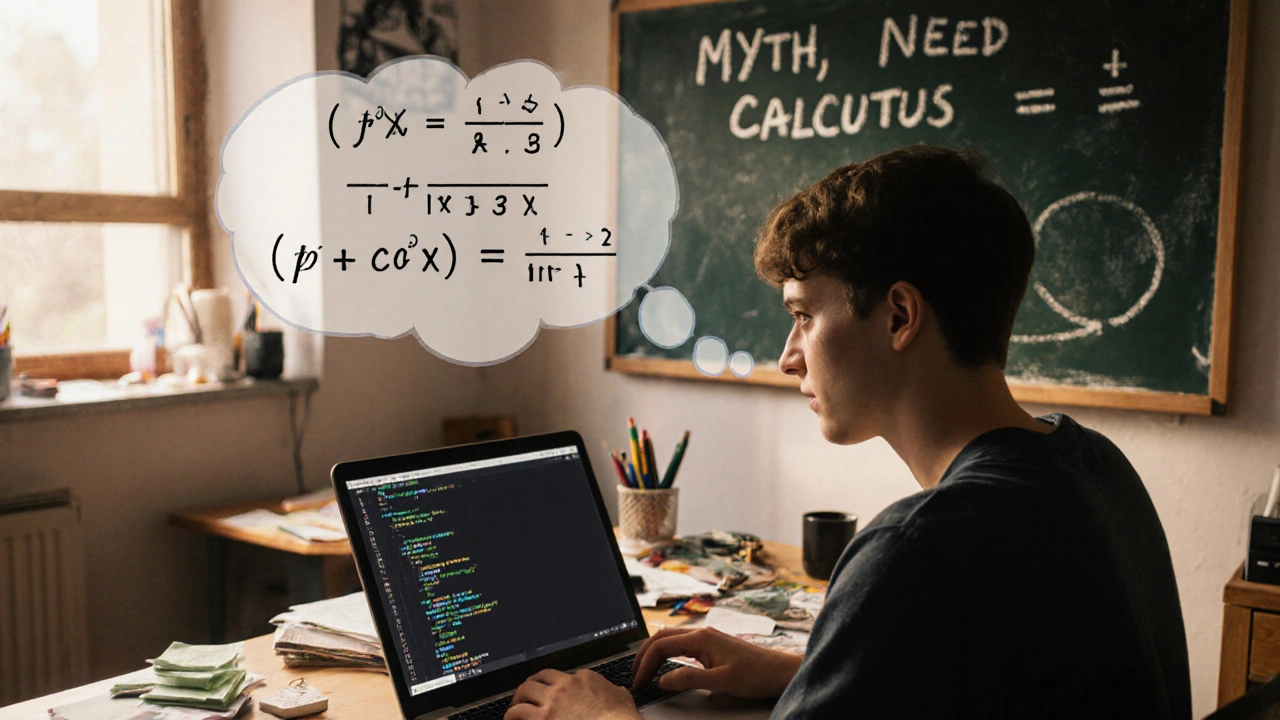
Does Coding Require Math? Myths, Facts, and How to Get Started
Explore if coding truly needs math, discover which fields demand specific concepts, and learn how to start programming with minimal math knowledge.
When we talk about Math for Coding, the blend of mathematical concepts that directly improve programming ability. Also known as computational mathematics, it helps you write cleaner algorithms, debug faster, and understand why code behaves the way it does. Math for coding isn’t just a buzzword; it’s the foundation that lets you turn abstract ideas into working software.
One of the first building blocks is Discrete Mathematics, the study of structures like graphs, sets, and logic that underpin most computer science problems. This field encompasses topics such as combinatorics and graph theory, which are essential when you design networks or optimize routes. Next up, Algorithmic Thinking, a problem‑solving mindset that breaks complex tasks into step‑by‑step procedures. Mastering this skill means you can translate a math concept into efficient code without getting lost in details.
Beyond logical reasoning, programmers often face data that lives in multi‑dimensional space. That’s where Linear Algebra, the branch dealing with vectors, matrices, and linear transformations comes in. Understanding matrix multiplication directly impacts how you write graphics engines, simulate physics, or train machine‑learning models. In fact, many deep‑learning libraries rely on linear‑algebra operations under the hood, so a solid grasp can make you a more effective developer.
When your code has to make predictions or handle uncertainty, Probability & Statistics, the science of quantifying randomness and drawing conclusions from data becomes indispensable. Whether you’re building a recommendation system or testing a new feature, you’ll need to assess risk, measure performance, and interpret results. This discipline influences how you write tests, evaluate algorithms, and even choose data structures that balance speed and accuracy.
Math for coding encompasses discrete mathematics, algorithmic thinking, linear algebra, and probability—all of which shape the way you approach software challenges. For example, a graph algorithm for social‑network analysis relies on discrete math concepts, while the same algorithm’s efficiency is judged through algorithmic thinking. Meanwhile, a neural‑network implementation draws on linear algebra to handle weight matrices, and statistical tests validate its predictions. These semantic links form a web where each topic reinforces the others.
Getting comfortable with these areas doesn’t require a PhD. Start with everyday coding problems: use set operations to remove duplicates, practice basic probability with simple simulations, or draw a vector diagram to visualize game physics. As you solve more tasks, you’ll notice patterns—your brain naturally starts applying the right math tool without thinking about it. That’s the power of integrating math into your daily coding routine.
Our collection below covers a wide range of content tailored to these core subjects. You’ll find practical guides on applying discrete math to algorithm design, step‑by‑step tutorials for matrix operations in popular programming languages, and clear explanations of statistical methods for evaluating code performance. Whether you’re a beginner eager to see how math improves your first script or an experienced developer looking to sharpen specific skills, the articles ahead will give you actionable insights.
Take a look at the posts below to see how each mathematical concept translates into real code, and discover tips that can immediately level up your programming toolkit.

Explore if coding truly needs math, discover which fields demand specific concepts, and learn how to start programming with minimal math knowledge.